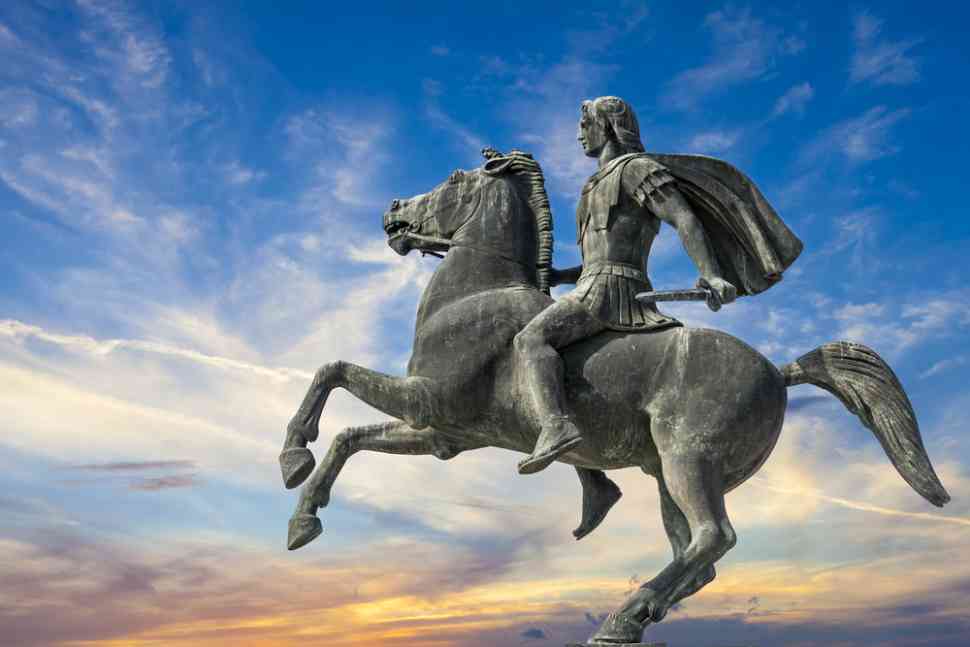Greatest military strategists and leaders in history who have excelled in wartime.

Throughout history, there are countless tales of military commanders who defied the odds, using strategic brilliance to conquer superior forces. Kings, admirals, generals, and conquerors have become legendary for their tactical prowess. Some of them met their destiny on the battlefield, while others left an indelible mark long after their military campaigns were over.
Drawing insights from Historynet, CEOWORLD magazine has curated a list of history’s most influential military commanders. This chronological list primarily includes men, which reflects historical disparities in military eligibility. The leaders are highlighted based on the significant battles or campaigns that defined their military careers.
Within this gallery of historical figures, there are some who go beyond being just military commanders and have a significant impact on the entire civilization. The likes of Genghis Khan and Alexander the Great, who were visionaries, took on the role of conquerors and boldly redefined the borders of their empires. Some leveraged their battlefield reputation to secure political appointments and elected positions, with several American generals even becoming the President, including the nation’s first commander-in-chief.
- Miltiades
Homeland: Athens
Peak Military Years: 490 B.C.
Miltiades orchestrated the Athenians’ triumph against overwhelming odds at the Battle of Marathon, vanquishing the Persians. - Leonidas
Homeland: Sparta
Peak Military Years: 480 B.C.
Eternally etched in a 2006 film, Leonidas led 300 Spartans in the Battle of Thermopylae against a colossal Persian force, facing defeat but attaining legendary status. - Themistocles
Homeland: Athens
Peak Military Years: 480 B.C.
Themistocles, despite a numerical disadvantage, secured victory in the naval Battle of Salamis by expertly timing the engagement, compelling the Persians into narrow channels where the Greek forces decisively defeated the tightly packed enemy fleet. - Philip II
Homeland: Macedonia
Peak Military Years: 337 B.C.
Conquering Greece, King Philip II bequeathed the territory to his son, later renowned as Alexander the Great. - Alexander the Great
Homeland: Macedonia
Peak Military Years: 336-323 B.C.
Famed for toppling the Persian Empire, Alexander established a vast empire spanning Greece to Egypt and India. - Qin Shi Huang
Homeland: China
Peak Military Years: 221-210 B.C.
Unifying China and constructing the Great Wall, Qin Shi Huang ascended as the nation’s first emperor. - Hannibal
Homeland: Carthage
Peak Military Years: 216 B.C.
Employing innovative tactics, the renowned general, victorious in battles like Cannae, inflicted one of Rome’s most severe defeats. - Scipio Africanus
Homeland: Rome
Peak Military Years: 202 B.C.
Triumphing over Hannibal at Zama, Scipio secured Rome’s strength, shaping its dominance for centuries. - Julius Caesar
Homeland: Rome
Peak Military Years: 100-44 B.C.
Conquering Gaul, Caesar garnered immense fame, enabling him to declare himself Rome’s dictator. However, this ascent to power ultimately led to his assassination by the Senate. - Marcus Agrippa, representing Rome, achieved a pivotal military triumph in 31 B.C. by securing victory in the Battle of Actium against Antony and Cleopatra, ultimately consolidating Octavian’s dominion over Rome.
- Attila the Hun, from the Hun Empire, played a crucial role around 450 in hastening the decline of the Western Roman Empire through his conquests.
- In 536, Flavius Belisarius, a figure of the Byzantine Empire, reclaimed significant Mediterranean territories previously lost during the disintegration of the Western Roman Empire.
- Khalid ibn al-Walid, serving under Muhammad, demonstrated unparalleled military prowess between 625 and 638, remaining undefeated in over 100 battles against the Byzantines, Persians, and other adversaries.
- Charlemagne, leader of the Franks, exerted military dominance from 742 to 814, conquering substantial parts of Europe and laying the foundation for the Holy Roman Empire.
- William the Conqueror, hailing from England, achieved military eminence in 1066 by winning the Battle of Hastings against the Anglo-Saxons, marking the beginning of Norman rule in England.
- Rodrigo Diaz de Vivar, a figure in Spain from 1044 to 1099, employed innovative tactics to triumph over both Moorish and Christian armies.
- Saladin, associated with Egypt and Syria, reached the zenith of military influence in 1187 by defeating numerous crusader armies and establishing a kingdom covering nearly 800,000 square miles.
- Genghis Khan, representing Mongolia, reached the peak of military power in 1227, constructing the largest contiguous empire in history. Geneticists later found that one in every 200 males today is a descendant of Genghis Khan.
- Alexander Nevsky, representing Russia in 1242, secured a significant victory by defeating invading Teutonics at the Battle of Ice.
- Edward I, as the ruler of England, experienced military prominence in 1298 by conquering Wales and prevailing over Scotland’s William Wallace at the Battle of Falkirk.
- Joan of Arc, representing France in 1430, stands as one of the most renowned women in military history, driven by her visions to lead French forces against the English in numerous engagements during the Hundred Years War, achieving victory in many.
- Mehmed II, the “father of conquest” from the Ottoman Empire in 1453, seized Constantinople and brought about the downfall of the Byzantine Empire.
- Fernan Cortes, a figure from Spain in 1521, with a contingent of conquistadors armed with superior weaponry and aided by a smallpox outbreak, devastated the Aztec empire, which fielded warriors in the hundreds of thousands, ultimately conquering Mexico.
- Suleiman I, representing the Ottoman Empire in 1529, earned the moniker “the Magnificent” by expanding the Ottoman Empire’s borders into North Africa.
- Francis Drake, a notable figure from Great Britain in 1588, played a crucial role in defeating the Spanish Armada. His early attack at Cadiz in 1587 and subsequent participation in the decisive battle the following year were instrumental.
- Ieyasu Tokugawa, leader of Japan in 1600, emerged victorious in the Battle of Sekigahara, unifying Japan and becoming the inaugural shogun of the Tokugawa era, which endured for over 250 years.
- Gustavus Adolphus, representing Sweden from 1611 to 1632, is recognized for pioneering innovations in the development of the modern army.
- Oliver Cromwell, a figure in England in 1645, secured victory over royalist forces with his “ironsides” cavalry, ensuring the continued existence of England’s parliament.
- Maurice de Saxe, representing France in 1745, achieved success in the Battle of Fontenoy and is acknowledged for introducing various innovations in military training and tactics.
- George Washington, a pivotal figure in the United States in 1781, secured independence through guerrilla warfare and key victories, notably at Yorktown, eventually becoming the nation’s first president.
Have you read?
Here’s Every Time the United States Sent Military Forces To China.
Most Powerful Companies in Australia, 2023.
The highest-paid tech CEOs in the United States.
Highest-Paid Biopharmaceutical CEOs in the United States.
Executive Pay: Top 8 Highest-Paid Hotel CEOs.
Openly LGBTQ CEOs at the helm of major global companies.
Add CEOWORLD magazine to your Google News feed.
Follow CEOWORLD magazine headlines on: Google News, LinkedIn, Twitter, and Facebook.
This report/news/ranking/statistics has been prepared only for general guidance on matters of interest and does not constitute professional advice. You should not act upon the information contained in this publication without obtaining specific professional advice. No representation or warranty (express or implied) is given as to the accuracy or completeness of the information contained in this publication, and, to the extent permitted by law, CEOWORLD magazine does not accept or assume any liability, responsibility or duty of care for any consequences of you or anyone else acting, or refraining to act, in reliance on the information contained in this publication or for any decision based on it.
Copyright 2024 The CEOWORLD magazine. All rights reserved. This material (and any extract from it) must not be copied, redistributed or placed on any website, without CEOWORLD magazine' prior written consent. For media queries, please contact: info@ceoworld.biz
SUBSCRIBE NEWSLETTER








